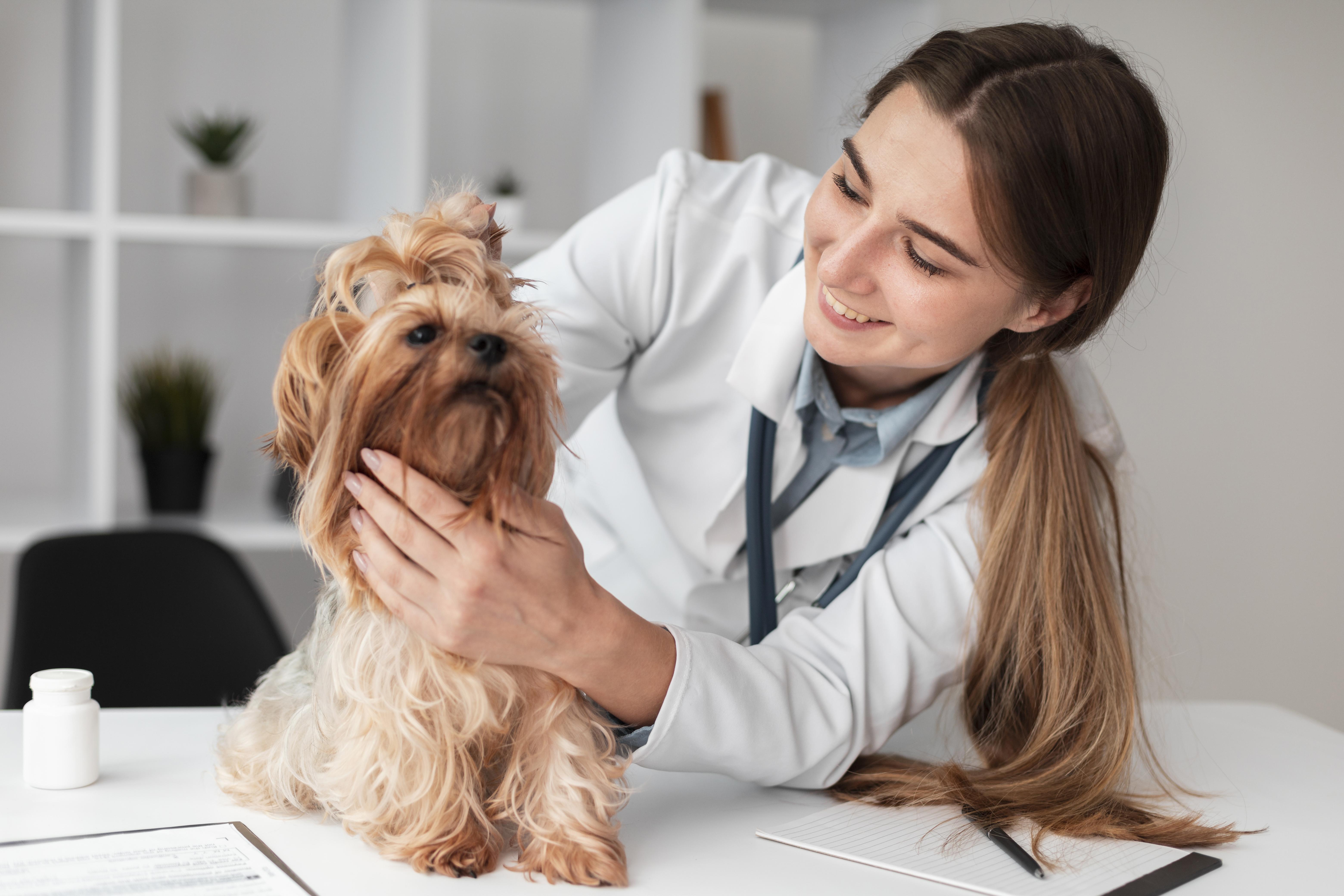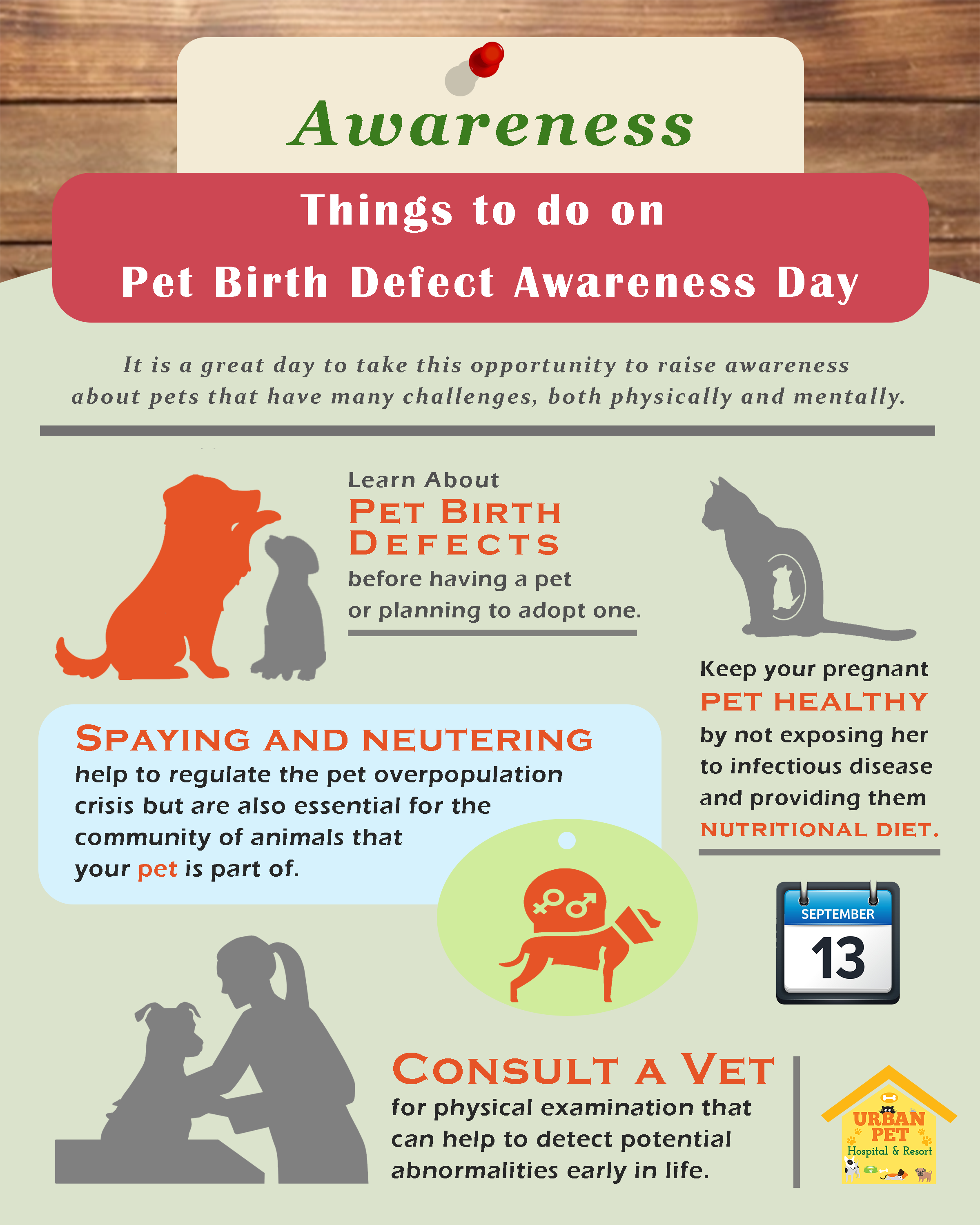Birth defects in pets can be visible at birth or develop over the course of the animal's life, affecting a kitten or puppy's organ or a bodily part.
Some defects may be minor and resolve as the animal matures, while others can prevent normal growth and development or even cause premature death.
Therefore, Pet Birth Defect Awareness Day is observed on September 13 and was initially created by Davis Rogers, founder of MBJungle Foundation.
The day is dedicated to bringing awareness about pet birth defects, including the importance of prevention, treatment and identification methods, and their mental health.
Various things such as genetics, exposure to medication, lack of nutrients during pregnancy, and diseases can cause pet birth defects, but learning about pet birth defects, keeping a pregnant pet healthy, spaying and neutering the pet, and consulting with a vet can help responsible pet owner to avoid pet birth defect.
Most external defects, such as limb deformities and cleft palates, are immediately recognizable at birth or shortly thereafter. Other internal defects like heart murmurs require a veterinarian’s assessment.
Read on to learn more about pet birth defects and how they can be reduced.
What Causes a Birth Defect in Pet?
Birth defects in a pet can occur for no known reason, may be due to genetics, breed specifics, or caused by environmental factors, or can be a combination of any of these.
1. Genetics
All animals, whether human, canine, or feline, carry specific recessive genes that provide various traits, such as green eyes, light or dark skin, and light or dark hair color.
In order to produce offspring with the desirable characteristics, selecting a specific breed and breeding animals is done.
Some birth defects that have proved to be genetics in certain breeds are passed on through the parent's genes.

The results can be favorable or unfavorable when both parents carry a certain recessive gene.
Moreover, excessive selective breeding can lead to the development of genetic disorders. As a result, numerous pets suffer from birth defect issues.
2.Exposure to Medication
Insecticides, fungicides, vaccinations, and other medications can be absorbed during pregnancy and cause birth defects in the unborn child.

- Carbaryl, an insecticide present in some flea powders, may be harmless for puppies and adults, but if applied to a pregnant pet, it can result in birth defects such as newborn can born without tails, short jaws, extra digits, skeletal malformations, and abdominal fissures.
- Using fungicide treatment for pets can cause hydrocephalus, open fontanelles, umbilical hernias, and cleft palates in infant animals.
- Testosterone and progesterones given to female dogs to enhance fertilization can cause masculinization of genitalia in female pups.
- Treatment with corticosteroids has been linked to limb malformations and dead fetuses.
3. Lack of Nutrients during the pregnancy
Undernourished pregnant pets result in low birth/brain weights, behavioral abnormalities, and increased infant mortality.
Vitamin A deficiency or toxicity can lead to congenital malformations, including malformed tails and skeletal defects in dogs and cats.
Similarly, lack of calcium causes skeletal abnormalities, particularly in large breed puppies.

Other mineral deficiencies, including phosphorus, potassium, chlorine, and magnesium, can cause forelimb bowing, convulsions, age-related hind end paralysis, limb weakening, and organ damage.
4.Diseases
The fetus is more vulnerable to the mother pet’s body temperature rising due to fevers brought on by illnesses or environmental temperatures.
The extremely high fevers in a mother dog infected with parvovirus can harm the unborn puppy.

Growth retardation, developmental problems, fetal mortality, and prenatal brain injury are all possible outcomes.
Suppose the pregnant cat has distemper or received a distemper vaccine. In such a case, birth defects like cerebellar hypoplasia are prevalent in kittens, causing tremors and wobbling.
Things to do on Pet Birth Defect Awareness Day
These specific pet health issues are not as widely discussed as they should be.
So it is a great day to take this opportunity to raise awareness about pets that have many challenges, both physically and mentally.
1.Learn About Pet Birth Defects
If you have a pet or planning to adopt one, it is necessary to know about pet birth defects.
Educate yourself and those around you about the genetic factors that might lead to birth defects in pets, especially in family lines and breeds.
Create positive living surroundings for pets that physical or mental issues may affect.
Avoid breeding specific animals, such as those with known diseases like cryptorchidism and hip dysplasia, to prevent their progeny from acquiring the same abnormality.
2.Keep Your Pregnant Pet Mother Healthy
Keep your pregnant pet healthy by not exposing her to infectious disease, medications unless prescribed by your vet, environmental contaminants, or extreme temperatures during the critical stages of fetal development between the 14th and 30th days of pregnancy.
Ensure your pregnant pet gets a good nutritional diet, along with prenatal and postnatal supplements.
- These essential supplements provide elevated levels of iron, folic acid, and zinc that optimize the production of red blood cells and blood flow.
- It also provides the essential nutrients for healthy newborns' development, improving uterine tone and easing birthing.
- In addition, the postnatal formula provides antioxidants to help with reproductive tract recovery and herbal ingredients to stimulate milk production.
Check the infographic for more information:

3.Spaying and Neutering
Spaying and neutering your pets is essential, not just for your pets but for the community of animals that your pet is part of.
Spaying and neutering help to regulate the pet overpopulation crisis, but it also helps lower the chances of pet birth defects.
Spaying female dogs and cats can help prevent them from serious health issues later in life, such as uterine infections and breast cancer.
Similarly, neutering your male pet can also lessen the risk of developing benign prostatic hyperplasia and testicular cancer.
Moreover, inbreeding puts newborn animals at a higher risk of health complications and defects.
4.Consult a Vet
Unless there is suspicion of a specific problem, puppies and kittens should not be routinely tested for every known infection or systemic abnormality.
Following your veterinarian’s recommendations for screening tests is essential, especially in pre-birth.
More importantly, all newborn pets should be taken to the vet for a medical examination as soon as possible after birth to evaluate them for birth defects that may not be visible or known to the owner.
A veterinarian's thorough physical examination can help detect potential abnormalities early in life.
Certain defects can be modified or fixed if the problem is detected earlier, with a better outcome for your pet.
For instance, minor mobility issues can be treated with therapy.
The veterinarian can also suggest the best treatment options if abnormalities are noted to ensure your pet can live the best quality of life.
Conclusion
Pet Birth Defect Awareness Day raises awareness of birth defects, a severe and widespread problem.
Pets that survive are more likely to experience physical, mental, and social challenges.
Veterinary care services may only scrape the surface when providing information on the financial and emotional impact of living with a birth defect.
Necessary steps should be taken to prevent pet birth defects.
Let’s do our part, put our efforts, support, and hope into reducing the number of future pet birth defects and mental illnesses.
To learn more, get in touch with Urban Pet Hospital & Resort, the best pet hospital in Urbandale.